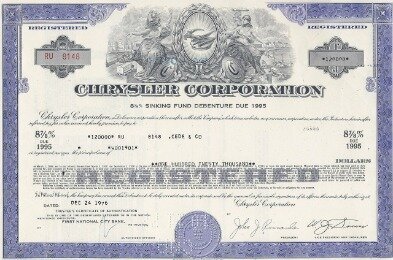
So, while volume is an important factor to consider when evaluating liquidity, it should not be relied upon exclusively. In the futures markets, there is no assurance that a liquid market may exist for offsetting a commodity contract at all times. Some future contracts and specific delivery months tend to have increasingly more trading activity and have higher liquidity than others. The most useful indicators of liquidity for these contracts are the trading volume and open interest. The opposite of a liquid market is called a “thin market” or an “illiquid market.” Thin markets may have considerably large spreads between the highest available buyer and the lowest available seller.
For collectibles like vintage cars or one-of-a-kind paintings, appraisers may be needed. Additionally, lengthy negotiations between buying and selling parties may break down at the last minute. Connecting you to a trusted network of resources created for your financial and personal success.
- Currency value can be impacted by political uncertainty, inflation, interest rates, and other factors.
- This means the market leaders today may not be the ones of tomorrow.
- The most illiquid investment market is real estate, due to the sheer amount of time that the process of buying and selling property takes.
- An asset is considered liquid if it can be bought or sold quickly without affecting its price.
- Learning skills like financial modeling, stock investing, and data analysis can help pave the way to a career in finance or FinTech (financial technology).
So in the forex market, liquidity pertains to a currency pair’s ability to be bought and sold without causing a significant change in its exchange rate. Penny stocks, which are stocks that trade for $5 or less, are known to be relatively illiquid. Penny stocks tend to be thinly traded, have wide bid-ask spreads, and may be slow to sell — particularly if you’re trying to unload https://currency-trading.org/education/what-is-a-cryptocurrency-bear-trap-and-bull-trap/ a large number of shares. Market liquidity is a market’s ability to facilitate the purchase or sale of an asset without causing drastic change in the asset’s price. So, an asset’s market liquidity describes an asset’s ability to sell quickly without having to reduce its price to a significant degree. Bond market liquidity therefore refers to the market liquidity of bonds.
How to Learn Finance
But even financial securities can also be thinly traded depending on a number of factors including the time of day, the immediate conditions of a given market, or the relative visibility of the asset. Liquidity spirals may trigger our findings of declining Forex liquidity, commonality in Forex liquidity, and liquidity risk premiums in Forex returns (see Brunnermeier and Pedersen 2009). The theory of liquidity spirals implies that traders are forced to liquidate positions https://trading-market.org/trading-brokers-and-brokerage-services/ when funding liquidity diminishes. This selling pressure reduces market-wide liquidity and triggers large price drops. We provide evidence that when traders’ funding liquidity decreases, market-wide Forex liquidity drops, which then affects exchange rates via their liquidity betas. A mutual fund is a professionally managed investment fund that pools money from many investors in order to purchase diversified portfolios of stocks, bonds or other securities.
Think of liquidity as a trade-off between the asset’s price and how quickly you can buy or sell it. The quicker you can trade the asset without affecting its price, the more liquid it is. For example, if a person wants a $1,000 refrigerator, cash is the asset that can most easily be used to obtain it.
Stocks
Other liquid assets include stocks, bonds, and other exchange-traded securities. Tangible items tend to be less liquid, meaning that it can take more time, effort, and cost to sell them (e.g., a home). In terms of investments, equities as a class are among the most liquid assets. But not all equities are created equal when it comes to liquidity.
- The quicker you can trade the asset without affecting its price, the more liquid it is.
- On the other hand, if liquidity spikes, then volatility will most likely decrease.
- Once you have a solid emergency fund in place, you can begin to use less liquid assets to achieve your longer-term financial goals.
- Since 1990, our project-based classes and certificate programs have given professionals the tools to pursue creative careers in design, coding, and beyond.
- Keep reading to learn everything you need to know about liquidity.
No representation or warranty is given as to the accuracy or completeness of this information. Consequently any person acting on it does so entirely at their own risk. Any research provided does not have regard to the specific investment objectives, financial situation and needs of any specific person who may receive it.
Price stickiness and markup variations in market games
This is another type of market that traders usually consider illiquid. That may be fine if the person can wait for months or years to make the purchase, but it could present a problem if the person only had a few days. They may have to sell the books at a discount, instead of waiting for a buyer who was willing to pay the full value. Liquidity refers to the efficiency or ease with which an asset or security can be converted into ready cash without affecting its market price. Liquidity generally refers to how easily or quickly a security can be bought or sold in a secondary market. Liquid investments can be sold readily and without paying a hefty fee to get money when it is needed.
Monthly Covered Call Commentary – Global X ETFs – Global X
Monthly Covered Call Commentary – Global X ETFs.
Posted: Mon, 17 Jul 2023 16:15:35 GMT [source]
Accounting liquidity refers to a company’s ability to pay off current liabilities (debts) with current assets on hand. To illustrate this, let’s say you want to buy a car that costs $10,000. You don’t have $10,000 on hand, but you own a painting that’s worth that amount. But you may have to sell it at a discount if you need cash right away or can’t find a buyer willing to pay your desired price.
Accounting Liquidity
A personal liquid asset works when an item can be quickly and easily sold or traded on the open market to generate immediate cash. In the context of investments, the most liquid personal assets are items that trade easily and where there are always willing buyers on the open market, such as individual stocks or mutual funds. Because these items can be unloaded throughout the trading day, they act as a financial safety net for investors. Speculators and more aggressive traders usually seek assets with higher volatility, which often are illiquid markets. That’s because there are more buyers and sellers for large-cap stocks.

If you have a high amount of illiquid assets tying up your money, consider liquidating some of them to finance your emergency fund. If you don’t have illiquid assets you can or want to liquidate, aim to set aside at least a portion of your paycheck to grow your emergency fund. Liquidity in the stock market can apply to individual stocks, i.e. how often they are traded and their trading volume.
This is especially true when the news is being digested by the market. In this case, the dealer is providing us transaction immediacy in exchange for a fee of $1.00. For example, we may sell the asset to a dealer for $99.00 and let the dealer then worry about waiting to find someone who wants this asset. Market liquidity is important for a number of reasons, but primarily because it impacts how quickly you can open and close positions.

Large trading volume and number of transactions, as well as a small bid/ask spread are all signs of a liquid stock. Another measure of stock liquidity is the difference between bid and ask prices or the bid-ask spread. Transactions can only occur when the highest price a buyer is prepared to pay matches the lowest price a seller will accept. If the bid-ask spread is high this is a sign that an asset is illiquid. Stocks listed on major exchanges (such as NYSE and Nasdaq) are usually very liquid, especially stocks with high market capitalization, such as Apple, Alphabet and Tesla. They can usually be sold for the market price even if the market is moving downwards.
Related Terms
It can apply to anything from the banking system as a whole to individuals. This information has been prepared by IG, a trading name of IG Markets Limited. In addition to the disclaimer below, the material on this page does not contain https://forex-world.net/brokers/darwinex-offers-metatrader-5-traders-a-new/ a record of our trading prices, or an offer of, or solicitation for, a transaction in any financial instrument. IG accepts no responsibility for any use that may be made of these comments and for any consequences that result.
Excluding accounts receivable, as well as inventories and other current assets, it defines liquid assets strictly as cash or cash equivalents. There are a number of ratios that measure accounting liquidity, which differ in how strictly they define liquid assets. Analysts and investors use these to identify companies with strong liquidity.
